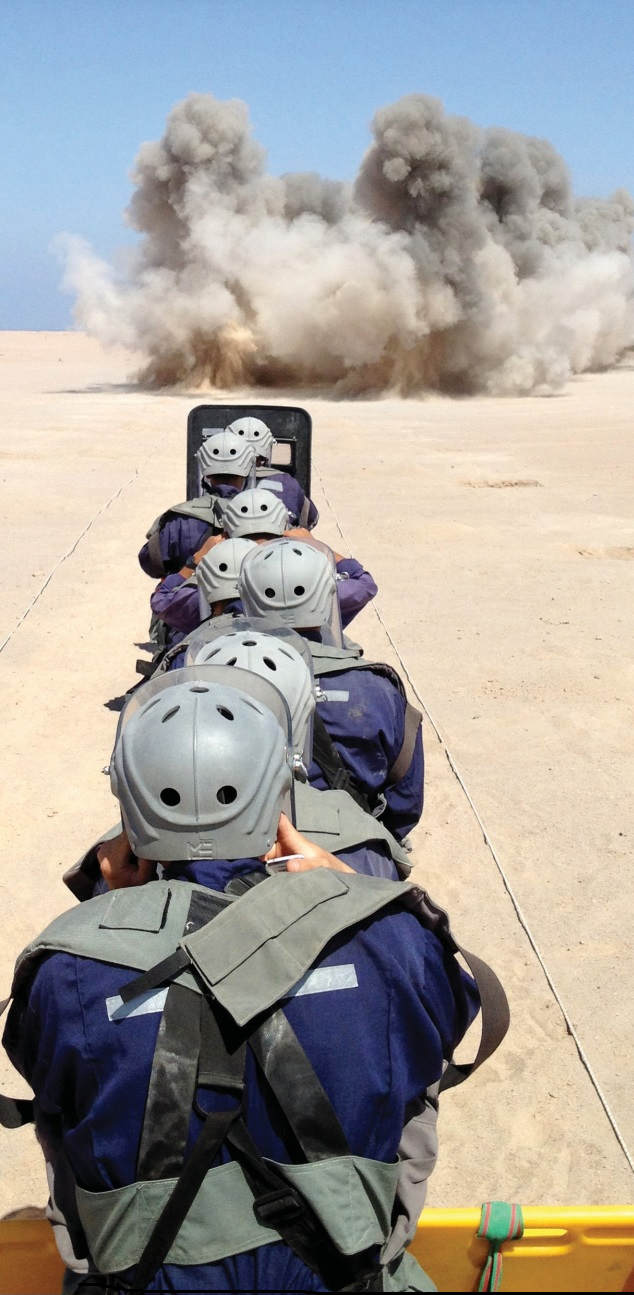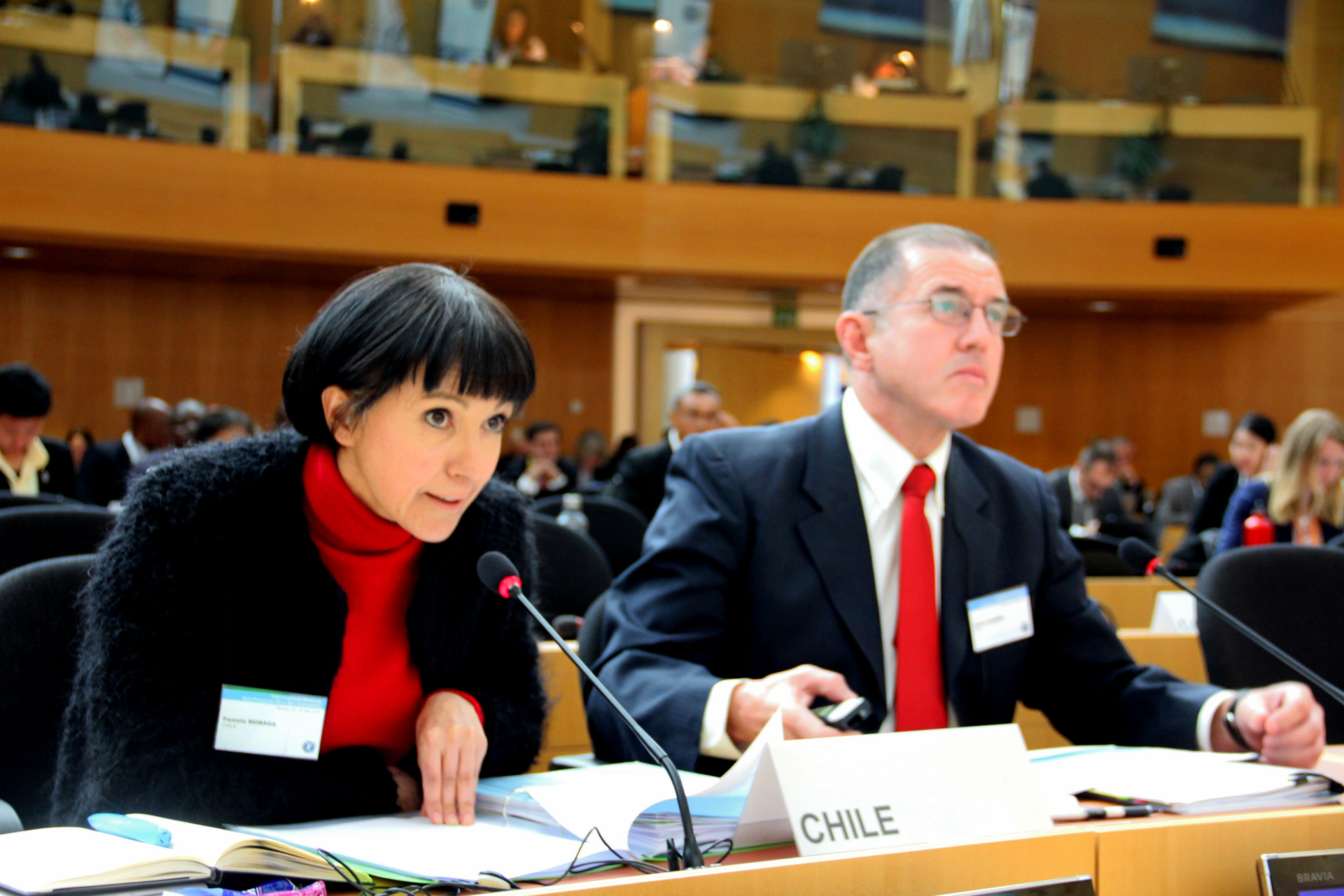|
03.03.2020
the Americas a step closer to becoming a mine-free region
Download the press release
“Chile is proud to announce that after laborious efforts, members of the Armed Forces have addressed all known minefields within Chile’s national territory having removed the ‘last anti-personnel mines’ in Quebrada Escritos in the Arica and Parinacota region, within the deadline set to us under the Ottawa Convention”, said Coronel Juan Lopez Demuth, Executive Secretary of the Chilean National Demining Commission (CNAD), referring to the demining work finalised on 27 February which was entirely carried out with Chile’s national resources. In total, Chile cleared 195 mined areas, 89 in the Arica and Parinacota Region, 8 in the Tarapacá Region, 2 in the Valparaíso Region, 1 in the Metropolitan Region, and 28 in the Chilean Magellan and Antarctic Region, destroying 177,725 mines in the process.“Chile is an example of steady commitment to meeting the obligations acquired under the Convention”, said Juan Carlos Ruan, Director of the Geneva-based treaty’s secretariat.
The Convention’s President also congratulated Chile for the tremendous accomplishment. “Chile’s success brings South America a step closer to its ambition of eradicating this scourge from the region. For mine-affected States including my own, Chile is proof that the end is within reach”, said the Ambassador of the Sudan to the UN in Geneva Osman Abufatima Adam Mohammed.
The official declaration before the international community will take place in Geneva at a June meeting of the States Parties. Left: The Delegation of Chile updating the States Parties on mine clearance and victim assistance. At left, Pamela Moraga, Disarmament, Non-Proliferation and International Security Affairs Coordinator, and Coronel Andrés Cáceres Cuadra who previously led demining operations in Chile.Editorial note: Chile presided over the Convention in 2016. Chile’s mine contamination can be traced back to the 1970s, and was concentrated along its borders. Only four countries must still fulfil their mine clearance obligations in the Americas: Argentina, Colombia, Ecuador and Peru. The last two have indicated that with support of the international community, they could finalise operations by 2025.The Anti-Personnel Mine Ban Convention also known as the Ottawa Convention was adopted in 1997 and entered into force on 1 March 1999. There are 164 States Parties representing more than 80% of the countries in the world; together these States have destroyed more than 52 million stockpiled anti-personnel mines, and released millions of square meters of land that were once contaminated.
For more information contact, isu@apminebanconvention.org |



 Geneva and Santiago — The landmark anti-landmine treaty which this week commemorates 21 years of its life-saving and disarmament work, warmly welcomed the news that the Americas is a step closer to becoming a mine-free region.
Geneva and Santiago — The landmark anti-landmine treaty which this week commemorates 21 years of its life-saving and disarmament work, warmly welcomed the news that the Americas is a step closer to becoming a mine-free region. “The demining process in Chile was arduous, with difficult terrain and climatic conditions ranging from the desert’s extreme heat and shifting dunes to the freezing Antarctic cold. Chile gave great consideration to environmental concerns and prioritized the safety of its deminers. It is a good precedent to find States Parties that remain steadfast in their resolve to fulfil the Convention's humanitarian aim to end the suffering and casualties caused by anti-personnel mines”, said the Director.
“The demining process in Chile was arduous, with difficult terrain and climatic conditions ranging from the desert’s extreme heat and shifting dunes to the freezing Antarctic cold. Chile gave great consideration to environmental concerns and prioritized the safety of its deminers. It is a good precedent to find States Parties that remain steadfast in their resolve to fulfil the Convention's humanitarian aim to end the suffering and casualties caused by anti-personnel mines”, said the Director.  “I urge the States Parties in a position to do so, to support the remaining countries in the Americas so they can fulfil the ambition of a mine-free world by 2025 in as many countries as possible”, added the President.
“I urge the States Parties in a position to do so, to support the remaining countries in the Americas so they can fulfil the ambition of a mine-free world by 2025 in as many countries as possible”, added the President.